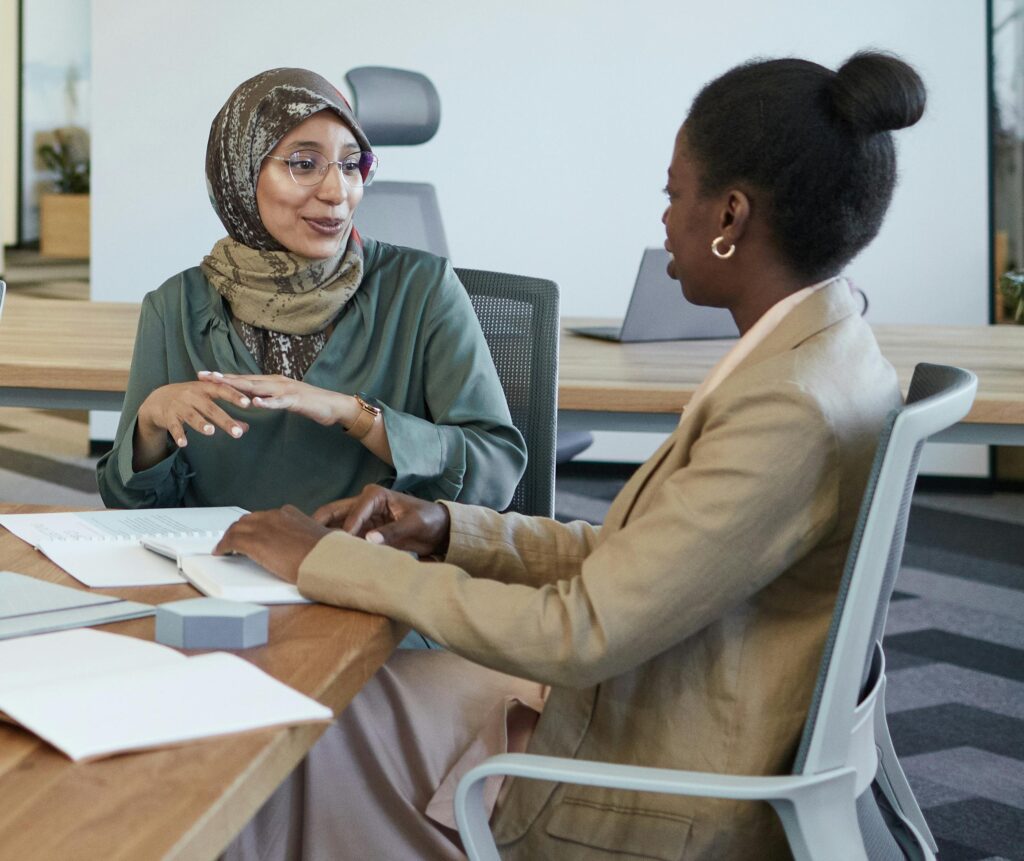Working in the Kane County Eviction Mediation Program for the past three years, I have seen firsthand the challenges self-represented litigants may face. I have also learned a lot by reading RSI’s research on related topics, such as the ODR Party Engagement (OPEN) Project. Recently, I had a chance to speak to members of the Illinois Supreme Court Access to Justice Court Navigator Network at the Kane County Law Library in Geneva, Illinois, about tips I’ve found useful in supporting these litigants. I am sharing them below with the hope that they will be useful to others.
1. Speak and write in plain English.
For native speakers as well as those for whom it is a second language, English can be a difficult language to master. Many self-represented litigants don’t have the language skills to understand the legalese that is often used in the courtroom. Thus, it is important that all court-related communications be written in plain English. Additionally, court-connected mediation programs and other settings involving self-represented litigants should have a staff member accessible to answer questions regarding court/program handouts and policies.
2. Provide translation.
Any paperwork should be readily available in commonly used languages other than English. In Kane County, our primary need is Spanish, but that will vary by jurisdiction. Translation services should also be provided as needed.
3. Be clear that outcomes are not predictable.
To avoid making promises you can’t keep, be sure to use language that does not promise a particular outcome. For instance, one could say “You may apply for a court fee waiver,” rather than “You can get your court fees waived.” This important distinction can prevent confusion down the line as the individual continues to navigate the court/program.
4. Be flexible with scheduling.
Courts/programs can be difficult to access for those who live near or below the poverty line and/or who have inflexible work schedules. For self-represented litigants with little or no income, it may be impossible to physically attend court or afford the devices necessary to attend court virtually. Buses, ride-hailing services and even bicycles cost money and can be time-consuming to use. Being flexible with scheduling allows participants a greater chance of attending, and without the extra burden of costs associated with travel, childcare, calling off work, etc.
5. Be knowledgeable about available resources.
Inability to use technology is another hurdle. Whether it be because the individual lacks the skills or the finances to utilize technology, online dispute resolution (ODR) programs and virtual court may only be an option with extra assistance from the court/program. Extra assistance may come in the form of lending a device, walking the self-represented litigant through connection issues, or referring them to another agency that can help get them connected. Libraries are a great resource for technology assistance and connection.
6. Keep an open mind.
Don’t assume you know anything about any particular self-represented litigant’s life, capabilities, technology access, education, finances, etc. What may seem simple or common to you may not even be an option for them. With that said, self-represented litigants come from all different walks of life, so it is even more important not to assume they are all alike and thus all have the same needs.
7. Be persistent when reaching out to parties.
How do you reach a self-represented litigant? Keep trying! The Kane County Eviction Mediation Program uses phone, text, email and in-person conversations to gather information and assist self-represented litigants face their legal challenges. Everyone has their own preferred communication method, so it takes different forms of communication to reach different people. Attempt contact frequently and through a variety of methods if you really want to reach the individual.
8. Be trustworthy.
Finally, the OPEN Project found that trust can be a big obstacle for courts. OPEN focus group participants were wary of the communications they reviewed. Thus, it is important that all court communications look official and provide solid contact information in case the self-represented litigant needs to ask questions or contact the court/program for other reasons.
Although there can be challenges when working with self-represented litigants, the individual parties can benefit greatly from the support. Mediation and similar programs can provide clarity, control, support, legal assistance, financial resources, housing counseling and other resources to self-represented litigants. They can decrease the amount of time a case remains in court (a benefit to everyone involved) and prevent unnecessary wage losses. Self-represented litigants may need regular reinforcement and assurance, but by providing this service we increase their access to justice.





